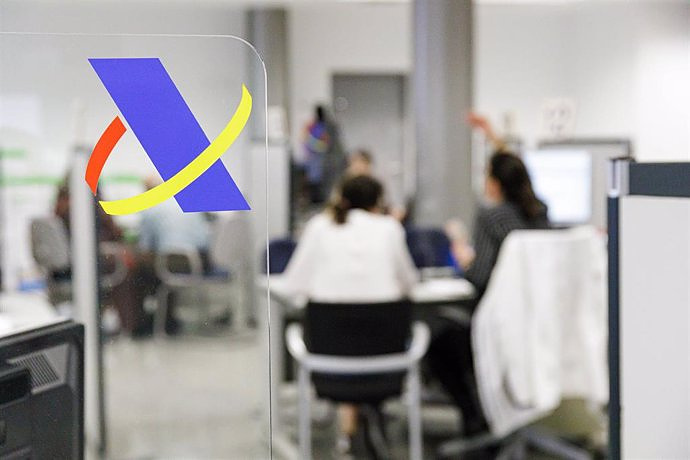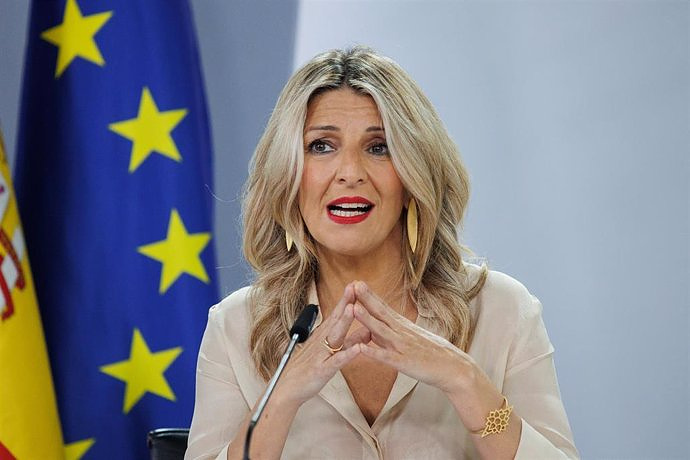It also asks the Inspection Service for a report on the situation in the TSJ
MADRID, 7 Nov. (EUROPA PRESS) -
The Permanent Commission of the General Council of the Judiciary (CGPJ) has commissioned the Technical Cabinet of the Supreme Court (TS) to issue a report on the "impact" that "legal impossibility" has on "each of the chambers" of the High Court of the governing body of the judges --while in office-- to "make discretionary appointments" as a result of the reform approved in March 2021.
According to the agreements adopted on November 3, collected by Europa Press, the Permanent Commission of the CGPJ has also asked the Inspection Service to write a report on the "impact" it has on "each of the different superior courts of justice " (TSJ) both the "legal impossibility of making discretionary appointments" and the "denial of reinforcement measures by the Ministry of Justice".
A year ago, in October 2021, the Governing Chamber of the Supreme Court approved a report from the Technical Cabinet in which it was warned that the fact of not filling the current vacancies in the High Court would imply that 1,000 fewer sentences would be carried out per year.
The document reviewed the impact of the inability to fill vacancies in each of the five courtrooms. Except in the Criminal Chamber -which the lack of coverage of vacancies did not affect in the immediate future- in the rest of the rooms the situation is defined as very worrying as the places are not filled urgently.
A year later, the situation has not improved: the CGPJ is still in office and now with an interim president after the resignation of Carlos Lesmes, so it cannot make discretionary appointments in the judicial leadership; and the political parties still have not reached an agreement to renew the 20 members of the governing body of the judges, whose mandate has expired since December 2018.
The situation, in fact, has worsened as several Supreme Court justices have retired and their departure has led the court to further collapse. Faced with such a scenario, sources from the governing body of the judges have assured Europa Press that the Council is considering among its options that of rescuing a 'plan b' devised in the times of Carlos Lesmes to alleviate the "unsustainable" situation of the Supreme Court.
According to the data handled by the CGPJ itself, the High Court has 17 vacancies that in the coming months could increase to 20 --which will mean 25% of its staff--, with a particularly worrying scenario in two rooms: the the Social and the Contentious-Administrative.
Within the TS, the most suffocating situation is suffered by the Social Room. It has 8 magistrates, after the recent retirements of its until now president, María Luisa Segoviano, who has been replaced by Rosa María Virolés --for being the longest-serving magistrate--, and Ricardo Bodas, when the Law of Demarcation and Judicial Plant establishes that it must be constituted by 12 magistrates and the president: 13.
This room deals with issues as relevant as labor claims related to COVID-19. In fact, in the last plenary session chaired by Segoviano, the ruling was approved that rules out the automatic nullity of the agreed dismissal without valid cause during the pandemic.
The situation of the Contentious-Administrative Chamber is also worrying. The law awards it 33 magistrates -- president included -- but the successive casualties have left it with 24, which will become 23 on December 27 due to the retirement of Octavio Herrero.
Two outstanding issues are pending in this room: the resources of PP, Cs and Vox against the pardons granted by the Government to those convicted of the 'procés'; and the resources formulated by the member Wenceslao Olea and the secretary of the CGPJ, José Luis de Benito, against the appointment of Rafael Mozo as interim president of the CGPJ after the resignation of Lesmes.
The resolution of the appeals of Olea and De Benito takes on special importance in the current situation, as it will clarify the extent to which the power of an acting CGPJ reaches, as well as the validity of the agreements adopted with Mozo as "alternate president", in which any of the aforementioned will be framed to rescue the Supreme.
The Military Chamber is also going through a critical situation because of the 8 magistrates granted by law, it only retains 6, which on September 7, 2023 could be reduced to 5 due to the retirement of Fernando Pignatelli.
More comfortable is the situation of the Civil Chambers -with only one vacancy and 9 of its 10 magistrates-- and the Criminal Chamber -which endures with its 15 magistrates, although on April 13, 2023 it could suffer its first exit for the retirement of Miguel Colmenero.
It should be remembered that these 17 vacancies in the TS are part of the 68 vacancies that there are today in the judicial leadership, among which we must also add 30 in the superior courts of justice --including seven presidencies--, 20 in the provincial hearings and one in the National Court.

 Exploring Cardano: Inner Workings and Advantages of this Cryptocurrency
Exploring Cardano: Inner Workings and Advantages of this Cryptocurrency Seville.- Economy.- Innova.- STSA inaugurates its new painting and sealing hangar in San Pablo, for 18 million
Seville.- Economy.- Innova.- STSA inaugurates its new painting and sealing hangar in San Pablo, for 18 million Innova.- More than 300 volunteers join the Andalucía Compromiso Digital network in one month to facilitate access to ICT
Innova.- More than 300 volunteers join the Andalucía Compromiso Digital network in one month to facilitate access to ICT Innova.-AMP.- Ayesa acquires 51% of Sadiel, which will create new technological engineering products and expand markets
Innova.-AMP.- Ayesa acquires 51% of Sadiel, which will create new technological engineering products and expand markets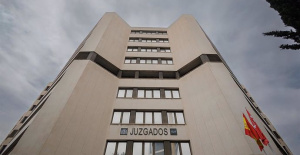 The judge who admitted the complaint of Clean Hands against Begoña Gómez interrogates two media officials this Friday
The judge who admitted the complaint of Clean Hands against Begoña Gómez interrogates two media officials this Friday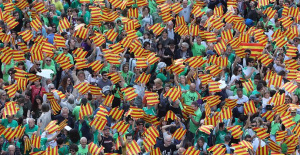 Thousands of people in Palma demand to defend Catalan against the "involutionary policies" of "a fanatical minority"
Thousands of people in Palma demand to defend Catalan against the "involutionary policies" of "a fanatical minority" Menotti, maestro of Argentine football since the 1978 World Cup, dies
Menotti, maestro of Argentine football since the 1978 World Cup, dies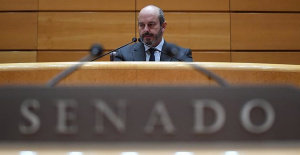 The amnesty faces its final stretch in the Senate with the question of whether it will be voted this week or after the Catalan elections.
The amnesty faces its final stretch in the Senate with the question of whether it will be voted this week or after the Catalan elections. How Blockchain in being used to shape the future
How Blockchain in being used to shape the future Not just BTC and ETH: Here Are Some More Interesting Coins Worth Focusing on
Not just BTC and ETH: Here Are Some More Interesting Coins Worth Focusing on A sensor system obtains the fingerprint of essential oils and detects if they have been adulterated
A sensor system obtains the fingerprint of essential oils and detects if they have been adulterated Faraday UPV presents the 'Origin' rocket to exceed 10 km of flight: "It is the beginning of the journey to space"
Faraday UPV presents the 'Origin' rocket to exceed 10 km of flight: "It is the beginning of the journey to space" The Generalitat calls for aid worth 4 million to promote innovation projects in municipalities
The Generalitat calls for aid worth 4 million to promote innovation projects in municipalities UPV students design an app that helps improve the ventilation of homes in the face of high temperatures
UPV students design an app that helps improve the ventilation of homes in the face of high temperatures A million people demonstrate in France against Macron's pension reform
A million people demonstrate in France against Macron's pension reform Russia launches several missiles against "critical infrastructure" in the city of Zaporizhia
Russia launches several missiles against "critical infrastructure" in the city of Zaporizhia A "procession" remembers the dead of the Calabria shipwreck as bodies continue to wash up on the shore
A "procession" remembers the dead of the Calabria shipwreck as bodies continue to wash up on the shore Prison sentences handed down for three prominent Hong Kong pro-democracy activists
Prison sentences handed down for three prominent Hong Kong pro-democracy activists ETH continues to leave trading platforms, Ethereum balance on exchanges lowest in 3 years
ETH continues to leave trading platforms, Ethereum balance on exchanges lowest in 3 years Investors invest $450 million in Consensys, Ethereum incubator now valued at $7 billion
Investors invest $450 million in Consensys, Ethereum incubator now valued at $7 billion Alchemy Integrates Ethereum L2 Product Starknet to Enhance Web3 Scalability at a Price 100x Lower Than L1 Fees
Alchemy Integrates Ethereum L2 Product Starknet to Enhance Web3 Scalability at a Price 100x Lower Than L1 Fees Mining Report: Bitcoin's Electricity Consumption Declines by 25% in Q1 2022
Mining Report: Bitcoin's Electricity Consumption Declines by 25% in Q1 2022 Oil-to-Bitcoin Mining Firm Crusoe Energy Systems Raised $505 Million
Oil-to-Bitcoin Mining Firm Crusoe Energy Systems Raised $505 Million Microbt reveals the latest Bitcoin mining rigs -- Machines produce up to 126 TH/s with custom 5nm chip design
Microbt reveals the latest Bitcoin mining rigs -- Machines produce up to 126 TH/s with custom 5nm chip design Bitcoin's Mining Difficulty Hits a Lifetime High, With More Than 90% of BTC Supply Issued
Bitcoin's Mining Difficulty Hits a Lifetime High, With More Than 90% of BTC Supply Issued The Biggest Movers are Near, EOS, and RUNE during Friday's Selloff
The Biggest Movers are Near, EOS, and RUNE during Friday's Selloff Global Markets Spooked by a Hawkish Fed and Covid, Stocks and Crypto Gain After Musk Buys Twitter
Global Markets Spooked by a Hawkish Fed and Covid, Stocks and Crypto Gain After Musk Buys Twitter Bitso to offset carbon emissions from the Trading Platform's ERC20, ETH, and BTC Transactions
Bitso to offset carbon emissions from the Trading Platform's ERC20, ETH, and BTC Transactions Draftkings Announces 2022 College Hoops NFT Selection for March Madness
Draftkings Announces 2022 College Hoops NFT Selection for March Madness

